Should I use a free VPN or a paid VPN? Or perhaps a better way to phrase the question: why should I pay for a VPN when there are free options available? It’s a common question, and I’d like to spend some time giving you a thorough answer. These differences between free and paid VPNs will help you decide which one would make sense for your situation.
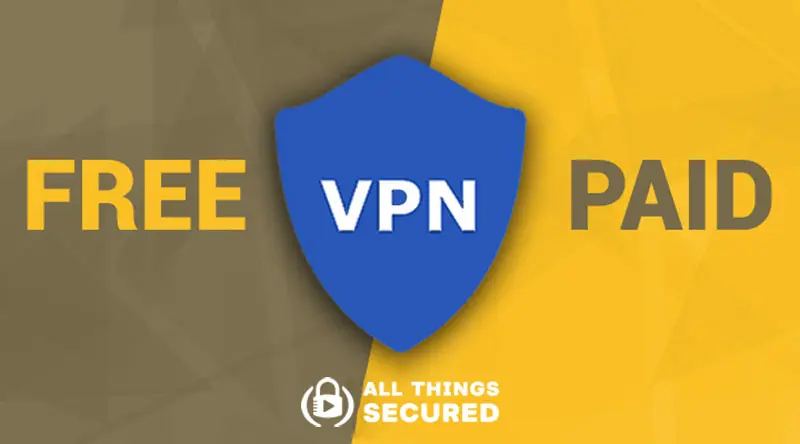
Let’s face it: when it comes down to price, free is always going to sound more appealing than having to dish out $50+ on an annual VPN subscription.
I get that.
But price is only one factor to consider as you choose between a free VPN and a paid VPN. If nothing is really free, then how exactly are you paying for the service.
Here are a few of the questions we’re going to be answering here:
Here’s what you can expect when thinking through these two options.
Note: Some of the links in this article are affiliate links, which means that at no extra cost to you, I may be compensated if you choose to use one of the services listed. I only recommend what I personally have used, and I appreciate your support!
What is a VPN and Why Do You Need One?
In today’s digital landscape, a Virtual Private Network (VPN) is one of many different tools for maintaining online security and privacy. A VPN creates a secure and encrypted connection between your device and the internet, ensuring that your data remains protected from hackers, trackers, and other malicious actors.
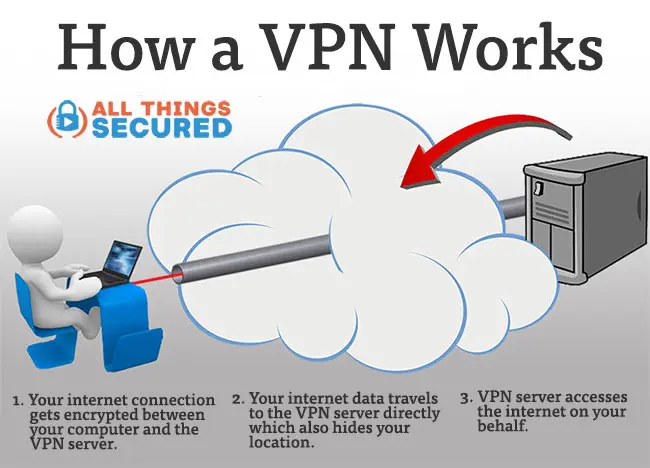
This secure tunnel not only safeguards your sensitive information but also provides peace of mind as you navigate the web.
A Virtual Private Network (VPN) keeps your data safe
One of the primary functions of a VPN is to encrypt your internet traffic, making it nearly impossible for anyone to intercept and read your data. This is particularly crucial when using public Wi-Fi networks (i.e. at airports or coffee shops), which are often unsecured and vulnerable to hacking attempts.

By employing a VPN, you can ensure that your sensitive information, such as passwords and credit card numbers, remains safe and secure, even on potentially risky networks.
A VPN protects your online identity and activity
Beyond data encryption, a VPN also masks your IP address and location, effectively protecting your online identity and activity. This makes it significantly harder for websites and advertisers to track your online behavior and collect your personal data.
Additionally, a VPN can help you bypass geo-restrictions and censorship, granting you access to content that may be unavailable in your region. This added layer of privacy and freedom is invaluable in today’s interconnected world.
A VPN is essential for secure browsing
In an era where cyber threats and data breaches are increasingly common, a VPN is essential for secure browsing. By using a VPN, you can enjoy a safe and secure online experience, free from the risks of hacking and data theft.
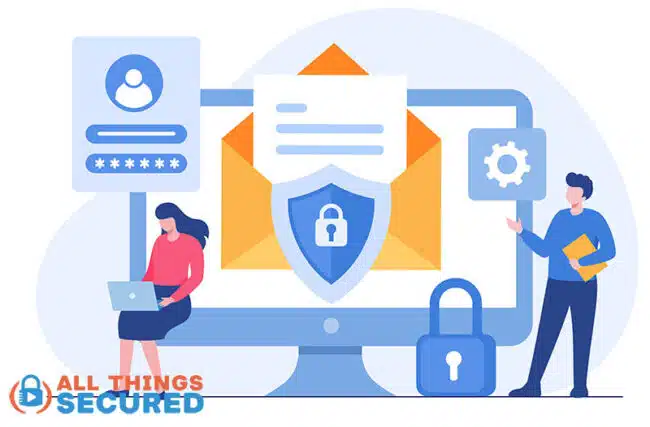
Whether you’re shopping online, accessing sensitive information, or simply browsing the web, a VPN ensures that your online security and privacy are always protected.
Are Free VPNs Really Free?
All VPN providers incur high overhead costs to provide their service. They need to manage or lease servers in multiple countries, invest in technology for encryption, software development, and of course, customer support.
In contrast, a paid service invests in robust infrastructure and customer support to ensure a high-quality user experience.
These costs don’t scale easily and they add up quickly.
With all these costs, how can free VPNs actually be free?
One thing is for sure: the VPN company is most certainly making its money somewhere. I can promise you that no VPN is providing a community service to us internet users. Free VPN providers often resort to alternative revenue generation methods that may compromise user privacy, such as selling browsing data or using adware.
The VPN company is most certainly making money somewhere. Unfortunately, most users don’t think about this before they jump in bed with a free VPN.
How Free VPNs Make Money

Let’s take Hotspot Shield as an example. Hotspot is a highly-rated consumer VPN with a free version that allows up to 750MB a day in usage.
In 2017, Hotspot Shield was accused of intercepting and redirecting traffic to partner websites like online advertising firms according to the Center for Democracy & Technology
Of course, Hotspot Shield denied the charges and claimed that users’ online privacy has always been their “absolute priority”. But that’s what every single VPN claims.
Every. Single. One.
The problem isn’t just limited to Hotspot Shield.
In a study covering 283 free VPN apps on Android, it was found that nearly 40% of free VPNs injected malware onto user devices for “malvertising”
Unlike free VPNs, paid services do not rely on selling user data and instead focus on providing secure and reliable connections.
Ad-funded VPNs and other free vpn services sell your data to big firms, advertising agencies, and corporate marketing departments, and come with a host of limitations and risks. These include potential data collection and selling, presence of malware or malvertising, lack of security investments, limitations in server numbers and quality, speed throttling, and ease of blocking by streaming services due to a limited number of servers. This is the antithesis of what a good VPN is supposed to do. Most of them are get-rich-quick scams (read more about Fake VPNs here).
Protecting your internet traffic from being accessed, monitored, and stolen by third parties is crucial, which free VPN services may not adequately do. The reason you’re getting a VPN is to strengthen your online security. A free VPN doesn’t do that.
Period.
The Drawbacks of Free VPN Services
While the allure of free VPN services can be tempting, they often come with significant drawbacks that can compromise your online security and privacy. One of the most concerning issues is that free VPNs frequently collect and sell your data to third-party companies, undermining the very privacy they claim to protect.
Free VPNs collect and sell your data
Many free VPNs generate revenue by collecting and selling user data to third-party companies, which then use this information for targeted advertising and other purposes. This practice can be a serious concern for users who value their online privacy and security. Moreover, free VPNs may also display intrusive ads and even malware, further compromising your online safety. By opting for a paid VPN service, you can avoid these risks and enjoy a secure, ad-free browsing experience.
In conclusion, while free VPN services might seem like a cost-effective solution, the potential risks and compromises to your online security and privacy far outweigh the benefits. Investing in a paid VPN service ensures robust protection, reliable performance, and peace of mind as you navigate the digital world.
What About Free-Trial VPNs?
It used to be popular for VPN companies to run on a “freemium model” wherein they offer a limited free-trial for a set period of days.
An example of this that still exists is the Tunnelbear free version that limits users to only 500MB of secured browsing (they don’t advertise this on the homepage…you have to search for “Free” under their Plans tab).
It’s advertised for “testing” and obviously geared toward getting you to buy the full VPN service.
While the free trial offers a glimpse of the service, the paid version provides full access to all features and better performance.
Today, most VPN services have traded this freemium model for the money-back guarantee model. What this means is that you have to pay up front for the service, but you have 30 days to get a full refund if you’re not satisfied.
Good examples of this would be Surfshark VPN or NordVPN, each of which guarantee a full refund, no questions asked, within 30 days. I’ll go into more detail about these below.
Provided that you have properly evaluated the product, a freemium VPN like Tunnelbear is fine to use. You’re more likely to find a money-back guarantee, however if you’re absolutely opposed to paying money up front, here are the free VPNs I recommend that operate on a freemium model.
Securing Your Traffic | Free VPN vs Paid VPN
Guaranteeing internet privacy, security, and uninterrupted access to geoblocked content requires investment in secure infrastructure and constantly-evolving technology.
This is what a good VPN promises its customers. Premium VPNs offer enhanced security features, greater access to server networks, and better compatibility with streaming services.
Choosing paid vpn providers over free alternatives ensures access to a service that invests in infrastructure, user experience, and security, offering a significantly better and more reliable online protection.
There are a number of reasons I recommend paying for a VPN. This includes:
- They Have More to Lose: As with any security technology, trust plays a big role in the process. I’d rather put my trust in a VPN company that has a lot to lose if they get caught selling my data, as opposed to a free VPN that can close up shop and easily reopen under a different name.
- Better Security Features: With paid VPNs, you can count on advanced encryption and additional bells and whistles such as a VPN internet kill swich that ensure anonymity as you surf the web.
- Proven Encryption: A paid vpn service has proven encryption. Did you know that in the above mentioned research study by CSIRO, it was also found that 18% of free VPNs didn’t encrypt traffic at all?
Not only do free VPNs lack many of these advanced features, but the level of encryption supported may not be secure. Free services also aren’t among the VPNs that offer the WireGuard protocol, because again, that takes time and money to implement. In contrast, paid vpn services and premium vpn options provide robust security features, including modern VPN protocols and additional features like Kill Switch and Split tunneling, ensuring a higher level of data protection and privacy.
If security is a priority for you, you might need to rethink using a free VPN. A secure and reliable vpn connection is crucial for maintaining privacy and security online, which is best provided by paid VPN services.
Recommended Paid VPNs with 5+ Years of History
For those who want recommendations on a reliable VPN service, these are a few of the ones I use on a daily basis.
These paid versions offer better protection against hackers and privacy issues compared to free options. I offer these as options here because they’ve all been in business for more than 5 years, they all have a strong privacy track record and they all offer a 30-day money back guarantee.
ProtonVPN | Best VPN with Free Option
- Part of the respected Proton Privacy suite of security apps;
- Free option available with limited servers;
- Numerous smart device apps to use;
- 30 Day Money back guarantee;
*Read my full review of ProtonVPN
ProtonVPN was first launched in June of 2017 as an add-on to the popular secure email service Proton Mail. Although best known for its strict privacy controls and the fact that they own many of their own servers, for the sake of this writeup it’s good to know that they have the best free VPN option on the market.
ProtonVPN ensures private internet access, protecting your data from hackers and trackers.
The free VPN is limited to only a couple servers and because you will be sharing those servers with many others who are trying to get free service, it often gets bogged down and slow. Just be warned.
NordVPN | Best VPN Apps
As a leading VPN provider, NordVPN offers a range of features designed to enhance your online security and privacy.
NordVPN has been an excellent option for me over the years and I especially like how easy their apps are to set up and use.
Nord is also one of the few services that offers a dedicated IP VPN service (additional fee) as well as other great features such as double VPN, obfuscated servers, Onion over VPN, etc.
Surfshark | Best Value VPN (other than free)

- Established in 2018;
- Excellent track record of privacy & security;
- Best value option with some of the lowest monthly rates in the industry.
- 30 Day Money back guarantee;
Virtual private networks like Surfshark provide secure and encrypted connections, ensuring your data remains protected.
I’m recommending Surfshark VPN because they remain one of the best values in the VPN market. If you’re on a tight budget, Surfshark usually has an option that will work.
There are plenty of other good VPNs that I could recommend, but I really don’t want to overwhelm you.
My suggestion is to find a service that has been around for a while, that you can verify with other users and that you would trust with your private information.
That list, at least for me, is very short.
Final Thoughts | Free VPN vs Paid VPN
Ultimately when surfing the internet, the most important things you’re interesting in when using a VPN is privacy and security
The best way to get this is through a reputable service provider that charges you a free for their service.
As the old saying goes: you get what you pay for
Many free VPNs have now been discovered to sell their users data to third parties along with not encrypting user web activity. Remember, there is no such thing as free and the costs of using a free VPN certainly outweigh what you would be getting in return for a paid one.

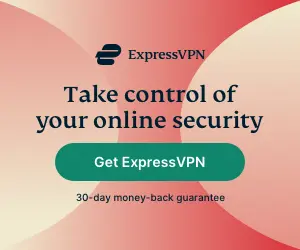
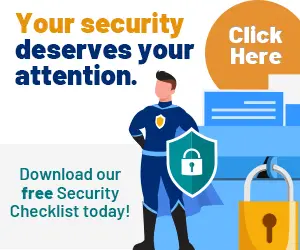

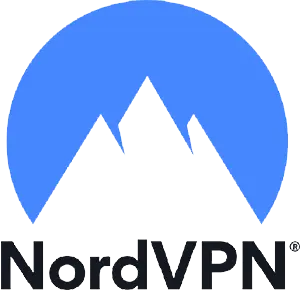
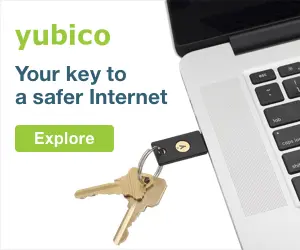
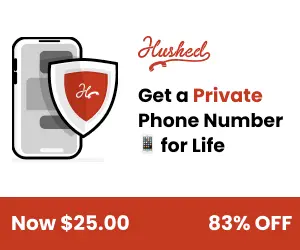
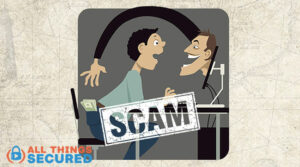

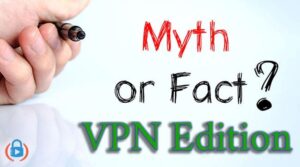

Wow, you’re really good. Thank you for a very nice overview of VPNs on firetv and your thorough reviews of many other services.
LA
My pleasure, LA! I’m glad it’s been useful.
Do you have any opinion on opera’s vpn included in their browser?
I haven’t had a chance to test it much, but from what I’ve seen it’s very limited. It does concern me, however, that Opera is amplifying the false marketing narrative that a VPN is the one-stop tool to keep you private and secure.
Hi, i was writINg a research paper on security risks related to vpn. can you suggest some good papers or online stuff(blogs,etc) i can refer to?
Thank you! the above was helpful as well!
Why not this one? 🙂